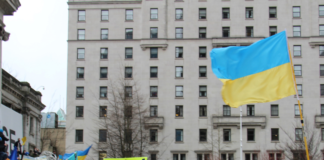THE BIGGEST QUESTION MARK ON THE PAGES OF CONTEMPORARY INDIAN HISTORY!!!
“Give me blood and I will give you freedom!!”- Roared the lion-hearted son of the Great Hindustani Swaraj in his most profoundly remembered speech in Burma in 1944, the man whose magnanimous audacity, towering persona and ferocious patriotism always sent a chill up the spine of the British. The founder of the INA-Indian National Army who promulgated his boundless love for his mother India across the globe and infusing such stellar courage into the hearts of Indians, whose fervent anger towards their oppressors finally found a medium of expression, the courage which they forgot they possessed, erupted like a rambunctious volcano. The man whose unparalleled stature in Indian History, concretised by his myriad efforts and selfless devotion towards the freedom struggle, is still alive in the hearts of every Indian- all of them curiously and passionately unified in a search for the answer to the question which is a black spot of Indian History—What is the truth regarding the incident of the plane crash of their beloved Netaji?
- “THE ONE NETAJI WHO DID NOT CARE ABOUT HIMSELF!”
Netaji Subhash Chandra Bose was born in Cuttack on January 23, 1897. His father was the government council in the district Pargana. Hailing from a family of high ranking officials of the British Government who were extremely loyal to the government never made Subhash concede in his opposition to the British rule and government.
Young Subhash portrayed prodigal levels of intellectual capability by securing second position in his province in the matriculation exam in 1913. He completed his B.A. with first division. Even during his college years, everyone who had the chance of making his acquaintance could not help but notice his ferocious love for his nation, supreme intelligence, towering charisma and the insurmountable leadership quality. Despite having such scholarly prowess, he was expelled from his college for assaulting his professor Prof. C.F. Ottan for insulting one of his classmates and making abrasive and condescending remarks on Indians—something which a true patriot could never bear to listen silently.
Father of Subhash Chandra Bose always dreamt of his son becoming a high-ranking government official like him. But obviously, destiny had other plans. Heeding to his father’s request, Subhash went to England for the I.C.S. examination( Indian Civil Services —Similar to the Indian Administrative Service under the British government). To everybody’s astonishment, he acquired the fourth position in the examination. Those were the times of extreme political unrest and upheaval of innumerable riots and strikes. The British, who earlier laughed off the Indian revolutions terming them as “storm in a teacup”, now started getting intimidated by the revolutions. They started deploying all sorts of means to repress the Indian struggle for freedom. Somebody as virtuous and morally upright as Subhash could not let a glamorous job and its economic prospective motivate him into betraying his ideals and he resigned from the extremely reputed I.C.S. job, disappointing his whole family.
- A LIFE LIVED FOR THE NATION, A DEATH MISSED BY HISTORY
Before analysing the conjectures and guesses regarding the mystery of Netaji Subhash Chandra Bose, let’s have a look at the events which lead to and invoked such a tragedy. After resigning from the I.C.S., Subhash went on becoming a teacher in the National Academy of Education and then the captain of the Congress volunteer corps. Later, he held the post of editor of the Forward Journal, the prime mouthpiece of the Swarajya Party. Through his articles and news pieces, he held a full-fledged war against the British and spread widespread awareness regarding the numerous tyrannies and atrocities which were inflicted on the Indians. These events caused the inception of the vituperative hatred that the British always preserved in their hearts for Subhash.
In 1925, Subhash was arrested under the Bengal ordinance. During his imprisonment of three years there, he suffered from Tuberculosis in addition to the brutal and harsh atrocities that were inflicted upon him.
In 1935, he amassed a massive following by virtue of his gargantuan leadership skills and it helped him to win the President post in the Haripura Congress against Dr. Pattabhi Sitaramayya. Upon getting this unexpected result, Mahatma Gandhi said “Pattabhi’s defeat is my defeat”. Though both Netaji and the Mahatma had immense mutual reverence for each other, they never looked eye-to-eye on political ideals and policies.
- “THE INDIAN SAMURAI”
After his differences with Mahatma Gandhi reflecting in his political ideals, Subhash incorporated the I.N.A. which was a stellar example of his supreme leadership and management capabilities. The army set an example for several progressive standards by incorporating a specific section for women, the “Jhansi Rani Brigade’’ in the army at a time when most Indian women did not have a world outside their homes.
Since the 1940’s Subhash was able to transform his reputation into a global phenomenon as he held meetings with political giants of the time including Hitler and Mussolini. Appointing the Indian National Army officials to manage the matters in India, he visited foreign countries to advocate his idea of Swaraj. The promulgation of the Army and its ideals also lead to the formation of an independent government called the Azad Hind Government. Subhash conducted radio meetings in Berlin and Rome, which were a huge success. The mass hysteria of his persona earned him the nickname – ‘The Indian Samurai’.
- THE BIG QUESTION MARK!!!
Even today, the life of Netaji Subhash Chandra Bose after the fateful day of August 18, 1945 is a subject of a myriad of conjectures, conspiracies and innumerable controversies. The much talked about series “BOSE-DEAD OR ALIVE?” concentrated on this topic of heated debate.
It is a much proliferated fact that Mahatma Gandhi sent a cryptic letter to the Bose family telling them not conduct Subhash’s last rites. Under the guidance of Mountbatten, Colonel John Figgess was tasked to investigate the truth of this issue under command by the Indian Political Intelligence agency. Historian Leonard A. Gordon strongly advocated that crash and the death proclamation was a sham since Bose’s other lieutenants who were supposed to accompany him to Manchuria never saw a body. There were no photographs of the injured or deceased Bose, neither was a death certificate issued.
It was a widely known fact that Subhash was a master of disguise. He was several times cited as assuming various identities in the achievement of his political motives. After his supposed death, there were several conjectures claiming that Netaji was seen at Assam, mostly the Peking region. Many photographs were propagated showing him in an aged form, some showcasing him as a Hindu ascetic or a renunciant.
On several occasions, the Bose family members claimed that Subhash was alive and would return to India at the appropriate moment. Several reporters asked them for a millilitre of their blood for a DNA matching test with someone suspected to be Netaji Subhash Chandra Bose in hiding.
- THE ONLY WAY TO HONOUR NETAJI’S LEGACY
Almost 75 years have passed since Netaji’s disappearance. No amount of controversies or discoveries can bring back that beloved son of Bharat Mata. The man who toiled all his life and sacrificed all worldly pleasures to attain his one dream- ‘Poorna Swaraj’,but was never around to celebrate the victory of Indian Independence. The only thing within our hands is to honour his memory by carrying his legacy forward through his steadfast ideals, his immense patriotism and unconditional love for Humanity. Let each of us vow to create an India which our beloved Netaji would have dreamed of—the cradle of brotherhood, the sanct abode of love, humanity and compassion, where children can toil hard to develop themselves into proud, capable sons of the Great Bharat Mata! Jay Hind!
By VISHNU PRASAD NAIR, UDAIPUR










